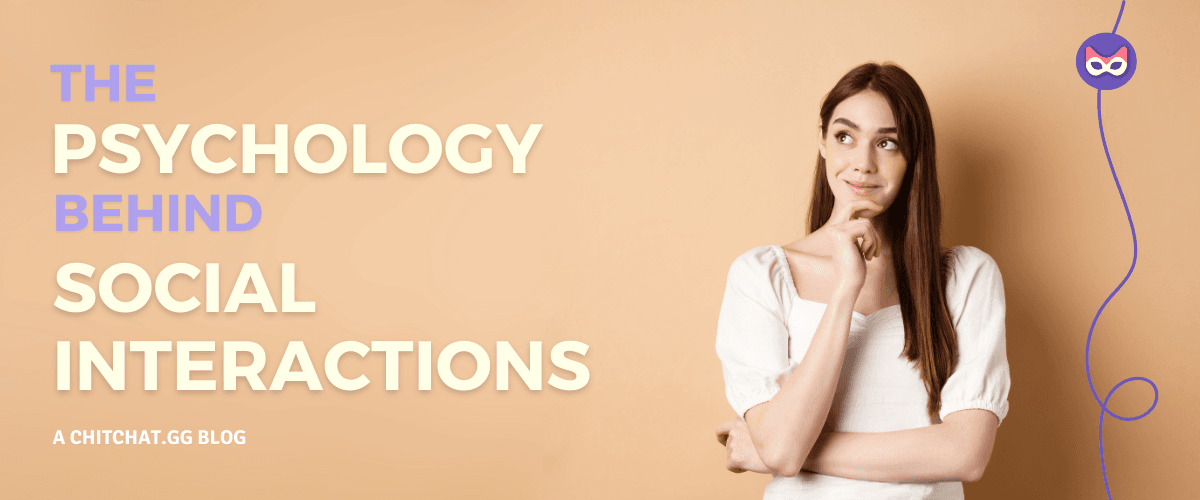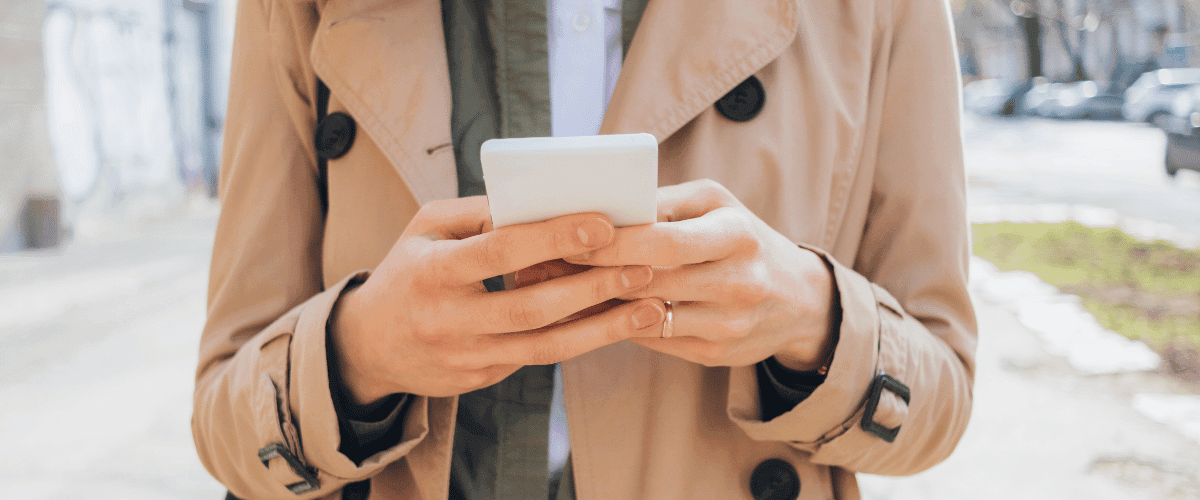
The Psychology of Social Interactions: Why We Open Up to Strangers
- Talina
- Text & Video Chat
- 25 Mar, 2024
Have you ever noticed how people interact with one another? From the subtle nods of acknowledgement to shared laughter that spreads across a room, social interactions are an interesting mix of psychology and behavior. So, let’s start exploring the fascinating world of the psychology behind social interactions!
The Spotlight Effect
Imagine walking into a crowded room. Do you ever feel like all eyes are on you, judging your every move? Well, you’re not alone. Welcome to the phenomenon known as the “spotlight effect.” This cognitive bias leads us to believe tat we are the center of attention more than we actually are. It’s driven by our tendency to forget that although we are the center of our own world, we are not the center of everyone else’s. So, before you let your inner critic hijack the dance floor, remember: everyone’s too busy worrying about their own steps to notice yours.
The Mirror Neurons
Ever felt an uncontrollable urge to yawn the moment you see someone else yawn? Blame it on your mirror neurons! These fascinating neural circuits fire both when we perform an action and when we observe someone else doing the same. They’re like the secret sauce behind empathy, allowing us to tune into the emotions and experiences of those around us. Next time you catch yourself mirroring a friend’s excitement or comforting a colleague in distress, tip your hat to your mirror neurons.
The Power of Nonverbal Cues
They say actions speak louder than words, and when it comes to social interactions, truer words were never spoken. From a firm handshake to a genuine smile, nonverbal cues can speak volumes, often conveying emotions and intentions more accurately than words alone. Let your body to the talking the next time you’re at a loss for words. After all, it’s fluent in the language of human connection.
The Halo Effect
Picture this: you meet someone new, and within minutes, you find yourself drawn to their charisma and charm. Congratulations, you’ve just experienced the halo effect! This cognitive bias leads us to perceive people who possess one desirable trait as having many desirable traits. Whether it’s a shining smile or a great sense of humor, remember that first impression can cast a long-lasting halo.
The Dance of Reciprocity
Ever held the door open for someone and received a warm “thank you” in return? That’s the dance of reciprocity in action. This social norm dictates that we feel compelled to repay others’ kindness or generosity. So, whether it’s a small favor or a heartfelt gesture, know that every step of kindness sets off a ripple effect of goodwill in the dance of social interactions.
The Bystander Effect
Picture this: a crowded street, a cry for help. Despite the sea of onlookers, no one steps forward to lend a hand. What gives? This is known as the bystander effect, a phenomenon where people are less likely to offer help in an emergency situation when others are present.
The Bandwagon Effect
Have you found yourself jumping on the latest trend simply because “everyone else is doing it”? You’ve just encountered the bandwagon effect! This cognitive bias nudges us to change our opinions, ideas, or behaviors to match the group norm, often leading to a snowball effect. So, whether it’s taking part in a viral TikTok trend or embracing a new fashion look, pause and ask yourself: am I dancing to my own beat, or simply following the crowd?
The Confirmation Bias
In social interactions, people have a tendency to pay more attention to information that confirms their pre-existing beliefs and ignore the ones that contradict them. This is known as the confirmation bias. It can often lead us down a slippery slope of echo chambers, where our views are reinforced, rather than challenged. Embrace curiosity and seek out diverse viewpoints to engage in richer, deeper conversations.
The Dunning-Kruger Effect
Ah, the dance of confidence and competence. Have you ever met someone who oozes self-assurance despite lacking the skills to back it up? The Dunning-Kruger Effect leads people with limited knowledge or ability to overestimate themselves, while people with genuine expertise may underestimate themselves. Let humility be your guiding star in the dance of self-awareness, and remember that true mastery often lies in recognising our own limitations.
When it comes to human connection, the psychology behind social interactions serves as our invisible dance partner, guiding our movements and shaping our experiences. The next time you find yourself immersed with the rhythm of conversation or caught in the sway of laughter, take a moment to appreciate the fascinating psychology that underpins it all.





